Different demographics have different understandings and experiences of HIV (human immunodeficiency virus). While younger people may not know very much about HIV and don’t consider it much of a threat, those with a longer life experience may still have a sense of dread regarding HIV. “The Good News About HIV” aims to bring public health professionals, healthcare workers, and providers up-to-date on HIV – the successes that have taken place, and the issues that remain, enabling them to take current knowledge and understanding into their work.
Learning Objectives:
- Describe the Evolution of HIV Treatment and its Impact on the survival/life expectancy of people with HIV.
- Explain HIV Treatment as a Prevention Strategy.
- Discuss Pre-Exposure Prophylaxis and its Impact on HIV Transmission.
Target Audience: Public Health Professionals including doctors, nurses, social workers, addiction counselors, dietitians and health educators.
Duration: 90 minutes
Continuing Education Information: Category 1 Credits for CHES: 1.5 (no continuing competency credits)
CHES Provider number: 99036Format: Recorded Webinar (1/12/2024)
Disclosures: The planners, reviewers, and authors have no declared conflicts of interest.
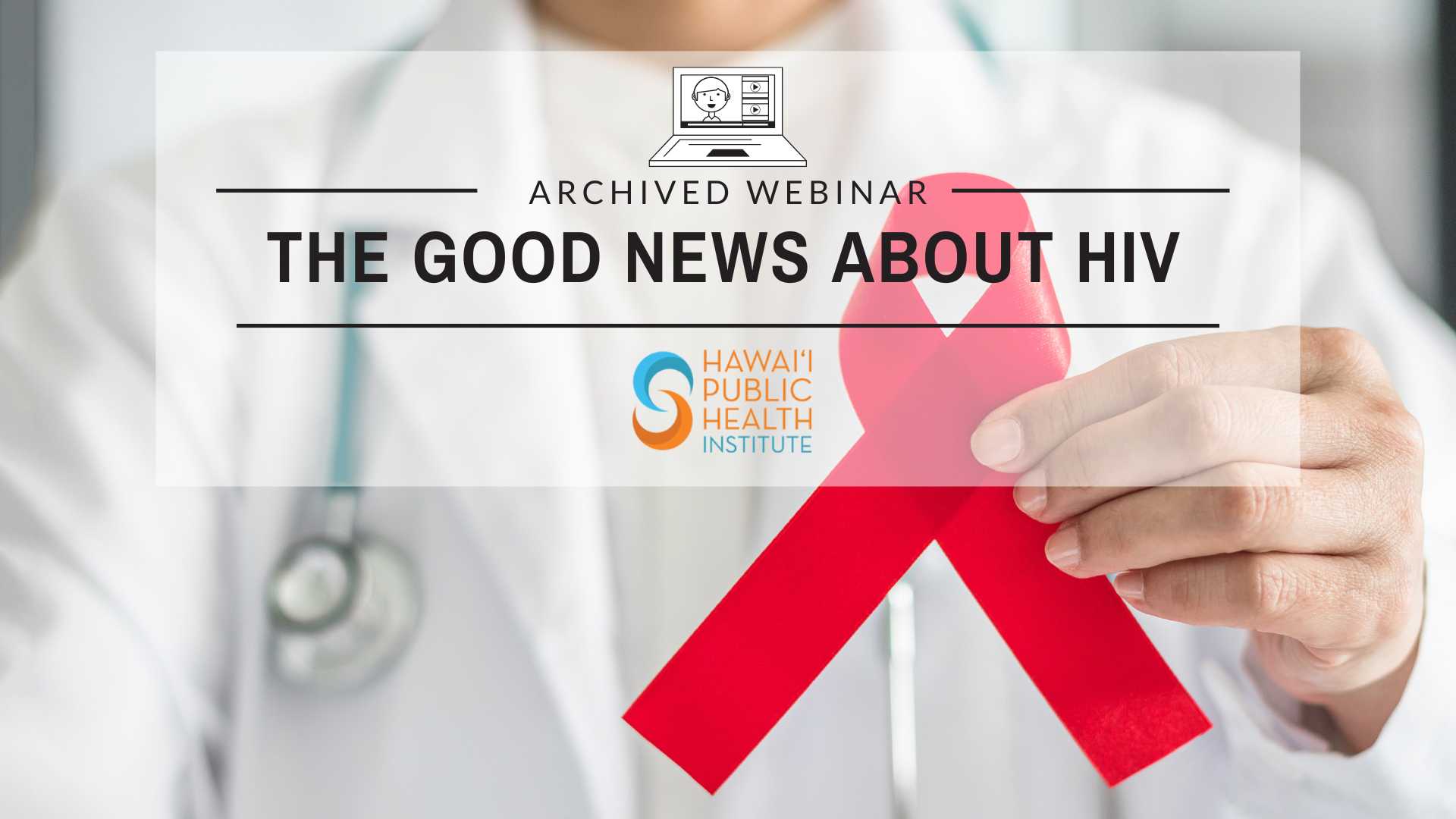
View the recording from a panel discussion of experts from the University of Arizona's College of Public Health, Campus Health, Banner Health, and the Maricopa and Pima County Health Departments demystifying the 2019 Novel Coronavirus.
Objectives:
- Foster better understanding of the 2019-nCoV outbreak using epidemiologic principles.
- Share reliable information and information sources regarding risk, prevention, diagnosis, and treatment from WHO, CDC, ADHS, Pima County Health Department, and UA Campus Health.
- Promote evidence-based preventative strategies.
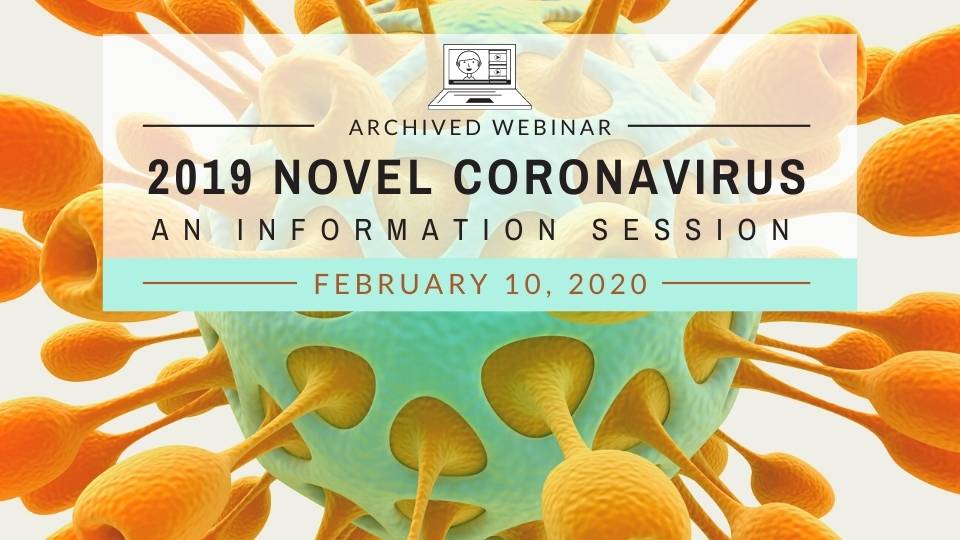
Seasonal flu vaccination is more important than ever amidst the COVID-19 pandemic. Unfortunately, vaccine hesitancy is a common issue that health care professionals encounter. This training will describe seasonal flu, the flu vaccine, and the synergistic epidemics of COVID-19 and influenza, and introduce strategies to address vaccine hesitance.
Course Objectives:
- Describe seasonal flu and seasonal flu vaccination
- Discuss the importance of seasonal flu vaccination during the COVID-19 pandemic
- Identify reasons for vaccine hesitancy
- Introduce strategies to address seasonal flu vaccine hesitancy
Target Audience: Health Care Professionals, Health Departments, Public Health Professionals
Duration: 45 minutes
Continuing Education Information: 0.75 Category 1 CHES Credits, 0.75 Continuing Competency Credits
Format: Web-based Training, Self-Study
Created/Updated: October 2020
Author(s)/ Presenter(s): Crystal Rambaud, MPH, RN; Caitlin Meyer Krause, MPH; Maiya Block; Elizabeth Chavez; Ava Neddermeyer
Arranged by: Caitlin Meyer Krause, MPH; Instructional Specialist
The Arizona Surge Line is a 24/7 toll-free call line that expedites the transfers of patients with COVID-19 across the state of Arizona, load-leveling, and protecting hospitals. The Arizona Surge Line was created and protocolized by the collaboration between Chief Medical Officers and Hospital Transfer Centers across the state and continues to shift and expand over time. The first strategy focused on transfers to higher levels of care and later expanded to lower levels of care to increase the availability of hospital beds. There are now real-time clinical consultations offered, backup transportation provided, a dashboard of all available beds in post-acute care facilities offered, and a novel surge staffing initiative is currently being implemented. The Arizona Surge Line has been referenced extensively in the press by the hospitals themselves and has been partially credited for the sheer amount of collaboration between systems, counties, county, and federal facilities.
Learning Objectives:
Learn how the load-leveling of resource-heavy patients across hospitals in the state was a collaborative, beneficial project that kept the healthcare system afloat in a state
Consider how a similar model could be implemented in public health departments across the country for a minimal cost
Explore how a centralized transfer line could be leveraged in other public health emergencies that would cause stress on the healthcare system
Target Audience: Public Health Professionals
Duration: ~ 25 minutes
Continuing Education Information: 0.5 CECH for CHES
Format: Web-based Training, Self-Study
Created/ Updated: 8/2020
Presenter: Lisa Villarroel, MD, MPH
Dr. Lisa Villarroel serves as the Medical Director for the Division of Public Health Preparedness at the Arizona Department of Health Services. She received her Bachelors in Biology at Princeton University and her Doctor of Medicine at Northwestern University before getting her Master’s in Public Health and becoming board certified in Family Medicine in Phoenix, Arizona. At the Department, she has served as the Medical Director for the Arizona emergency response to Ebola, Zika, Opioid and COVID-19 Crises. She was a lead for the Arizona Opioid Prescribing Guidelines(2018), the Arizona Pain and Addiction Curriculum(2018), the Arizona Surge Line, and the Arizona Surge Staffing Initiative. In addition to her work at the health department, she is an assistant professor at the University of Arizona College of Medicine and a practicing locum tenens.
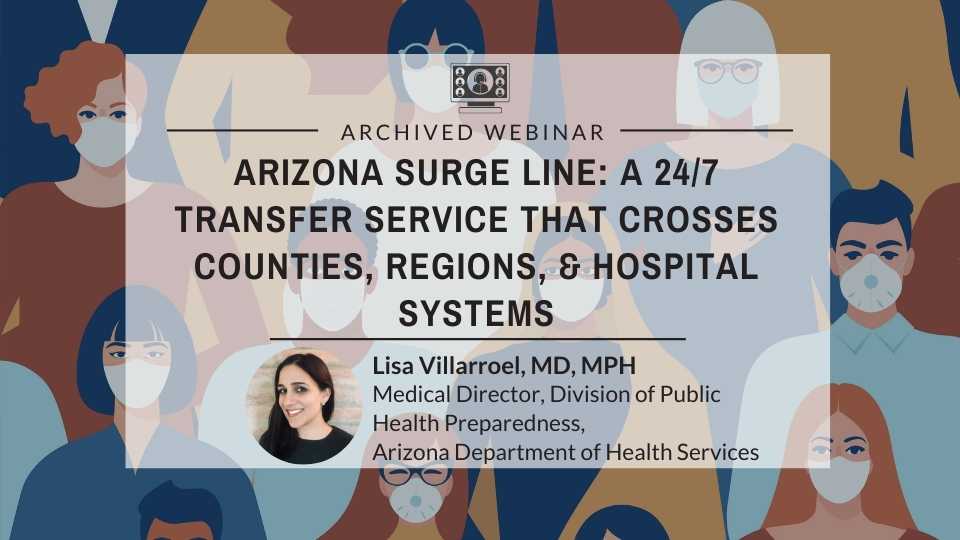
The COVID-19 pandemic has starkly exposed what public health workers have known for years: We, as a society, have failed to assure the conditions in which people can be healthy. In his keynote, Dr. Levy will discuss the ways in which COVID-19 has revealed society’s failures to protect public health and describe strategies to address these failures to strengthen public health.
Learning Objectives:
- Identify at least five ways in which COVID-19 has revealed society’s failures to protect public health
- Describe at least three ways to strengthen public health.
Target Audience: Public Health Professionals
Duration: ~ 27 minutes
Continuing Education Information: 0.5 CECH for CHES
Format: Web-based Training, Self-Study
Created/ Updated: 8/2020
Presenter: Barry S. Levy, M.D., M.P.H.
Barry Levy is a physician and epidemiologist who has worked in public health for more than 40 years. He is a graduate of Tufts College, Cornell Medical College, and the Harvard School of Public Health. He completed residencies in internal medicine and preventive medicine. Dr. Levy has served as a medical epidemiologist with the CDC, a professor at the University of Massachusetts Medical School, and a director of international programs and projects. For many years, he has been an Adjunct Professor of Public Health at Tufts University School of Medicine. He has written more than 200 papers and book chapters and has edited 20books on occupational and environmental health, climate change, social injustice, and the impacts of war and terrorism on public health. He has served as president of the American Public Health Association and received its Sedgwick Memorial Medal.
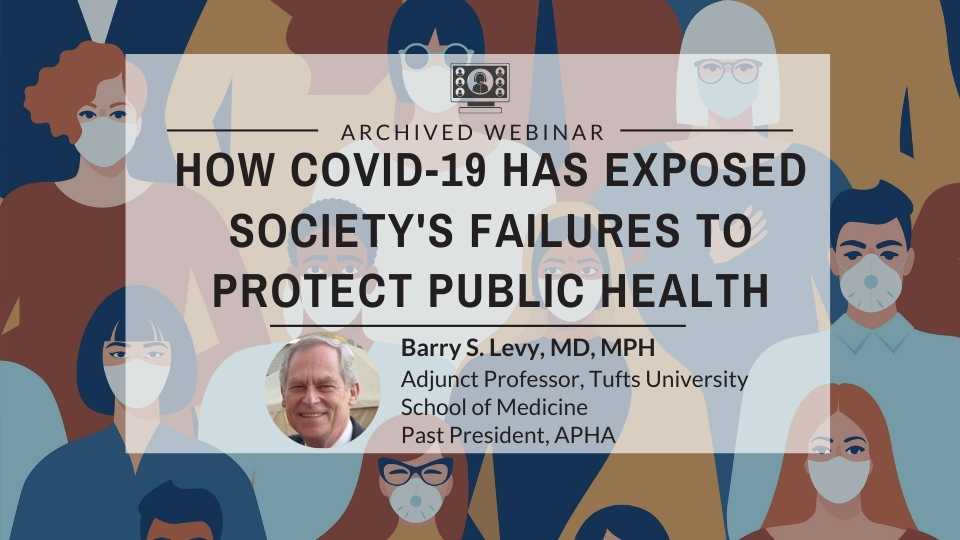
The purpose of this training is to help peers and CHW's understand their role in effectively supporting their clients living with communicable diseases. This training will inform peers and CHW's about high-risk health conditions associated with substance use disorders, special considerations when working with clients who have been diagnosed with a communicable disease, and their role in supporting these clients. In addition, this training will equip peer specialists with appropriate resources to which they can refer their clients when additional support is warranted.

Learn best protocols to avoid infection, particularly in the context of pathogen exposure prevention for firefighters and EMS responders. Created in collaboration with Dr. Kelly Reynolds, Professor and Chair in the Department of Community, Environment, and Policy, and Director at the Environment, Exposure Science, and Risk Assessment Center (ESRAC), the Tucson Fire Department (TFD), and the Western Regional Public Health Training Center (WRPHTC) at MEZCOPH.
Learning Objectives:
- Identify highly infectious pathogen-specific hazards
- Understand common exposure pathways for first responders
- Compare strategies for reducing exposure potentials
- Distinguish effective infection control protocols
Continuing Education Information: n/a
Created/Updated: 3/2020
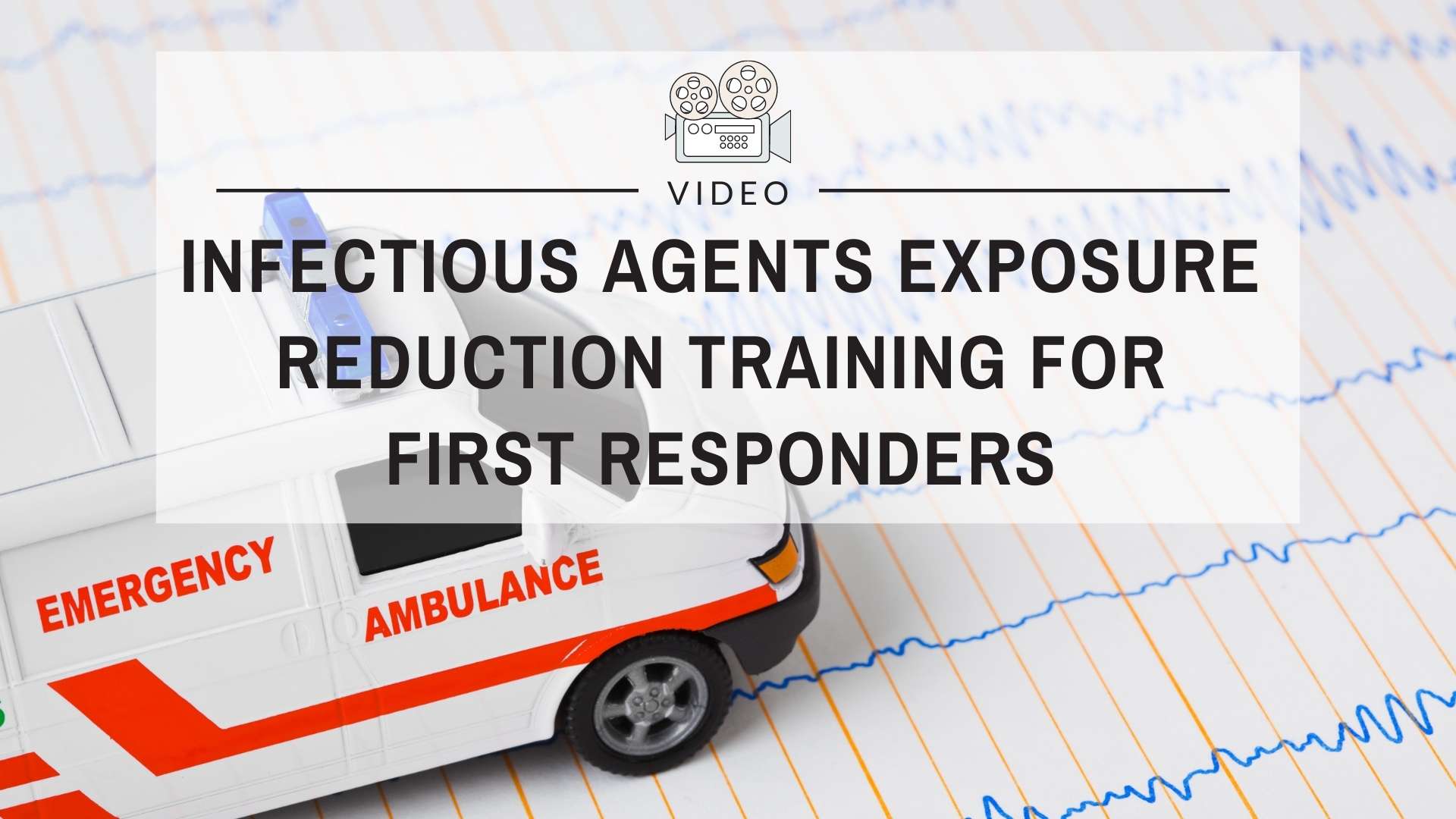
The Zuckerman College of Public Health Contact Tracing Program is a 7-module training for Contact Tracers in the State of Arizona. This course covers; an introduction to contact tracing, epidemiology of COVID-19, communication skills, the Incident Command System, the Medical Electronic Disease Surveillance Intelligence System, and the economics of contact tracing, and the State politics of a pandemic.
After completing this course, you will be able to effectively perform the duties and responsibilities of a contact tracer with a working understanding of the systems, tools, and policies with contact tracing.

- Describir las causas probables, la propagación y los síntomas del nuevo coronavirus
- Aclarar los mitos y rumores actuales sobre COVID-19Citar respuestas de expertos médicos
- Usar las habilidades escritas en las Competencias básicas de Promotores de Salud del Departamento de Servicios de Salud para disipar mitos y rumores
- Incluir aspectos culturas para la prevención y tratamiento de COVID-19
